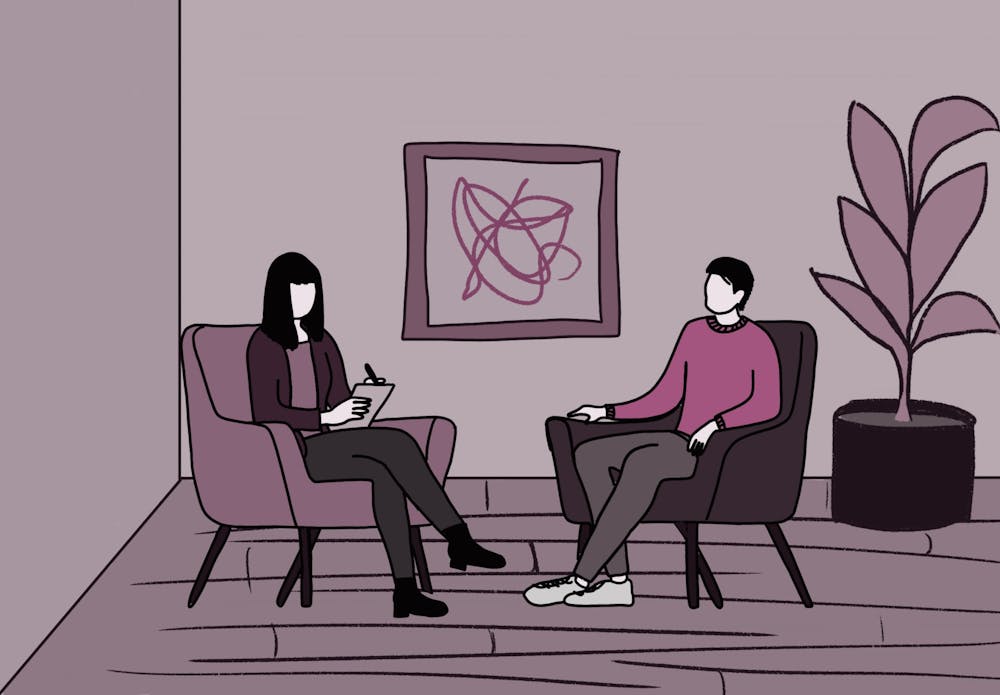It is well known that when mental illnesses are left untreated and unaccounted for, the consequences can be severe for an individual and the community they inhabit. The University’s own community of trust is no exception. Students do not lie, cheat or steal in a vacuum — rather, their lives are populated with stressors that lead to dishonorable behaviors. Mental health issues, specifically, can exacerbate these stressors and promote transgressions against the community of trust. This is something that the Honor Committee has realized and attempted to address through its current Contributory Health Impairment procedures. These measures, however, fall short of their intended purpose because they continue to place the burden of self-advocacy on students.
According to its procedural documents, the Committee will consider whether an accused student possesses a CHI which is any health impairment that contributed to a student’s decision to commit an honor offense. The existence of a CHI or a lack of capacity would be determined, at least in part, with a psychological assessment by an appropriately qualified expert. However, this assessment must be requested by the student themselves, a structure which places the burden of drawing attention to their mental health on students who are already involved in a stressful process. To guarantee that all accused students receive the appropriate consideration of their mental health, the Committee must shift their policy on mental health evaluations from opt-in to opt-out.
Under existing policies, not only are students responsible for drawing attention to their mental health, they are similarly responsible for navigating the process and requesting any necessary assistance independently. Aside from stealing precious time and placing an intense mental burden on the student, this process is also wholly ineffective. To properly ensure that all accused students are judged fairly and with due consideration for their health circumstances, the Committee should reform the CHI structures, making psychiatric evaluations a basic preliminary step in its trial procedures. That is, all accused students should be scheduled to undergo an assessment, unless they voluntarily opt out of it. This would ensure that students who may qualify for special consideration receive it even if they did not initially realize they required it.
More than putting a burden on students, current CHI procedures, in fact, fail to ensure that all accused students who are affected by a mental health disorder receive proper consideration. For example, anxiety and depression, two common mental illnesses among college students, are notoriously underdiagnosed. Thus, students may not even know that they are suffering from a mental illness, much less that they are eligible to have such illness accounted for by the Committee. This could mean that a student with a CHI will be forced to face trial and receive punishment for an act that, on account of said CHI, does not actually constitute a purposeful or unimpaired violation of the honor code.
Considering a student’s mental health needs is not tangential to the goal of the Committee but rather essential to its stated goal of “[supporting] the community of trust.” According to recent surveys of college students, many feel that the mental health support systems of their universities fall short in providing the care that they need. The Committee, as an important part of the University community, has a role in acknowledging such concerns as both a valid part of the student experience and an imperative for them to think more critically about how the structures they have implemented impact student mental health.
Moreover, being more conscious of mental health in all cases that come before the Committee should not be misconstrued as being “soft” on Honor Code violations. All that would change is that the Committee would widen the already existing safety net to ensure all students receive their due process. Our commitment to uphold the honor code would not waiver, the Committee would be in turn honoring the very real struggles students face. Furthermore, an increase in the accessibility of mental health assessments for accused students does not significantly increase the likelihood that a student will escape justice by falsely claiming a CHI, since CHIs must be confirmed not only by an appropriate mental health expert, but by members of the Committee itself. These changes by no means reduce the enforcement capabilities of the Committee, but simply add a step to ensure every student receives proper mental health considerations.
A Committee that is sensitive to the mental health of students would retain greater legitimacy in the eyes of students — students will only buy into a system which genuinely supports and is invested in their wellbeing. And this demands more than a concert or an art competition, rather a fundamental and daily commitment to the mental health of students is needed. Mental health should be a priority in the eyes of the Committee. By reforming the CHI procedures to better foreground the needs of students, a path towards a more equitable and compassionate system can be established.
Viet Huynh is an opinion columnist who writes about student self-governance for The Cavalier Daily. He can be reached at opinion@cavalierdaily.com.
The opinions expressed in this column are not necessarily those of The Cavalier Daily. Columns represent the views of the authors alone.







